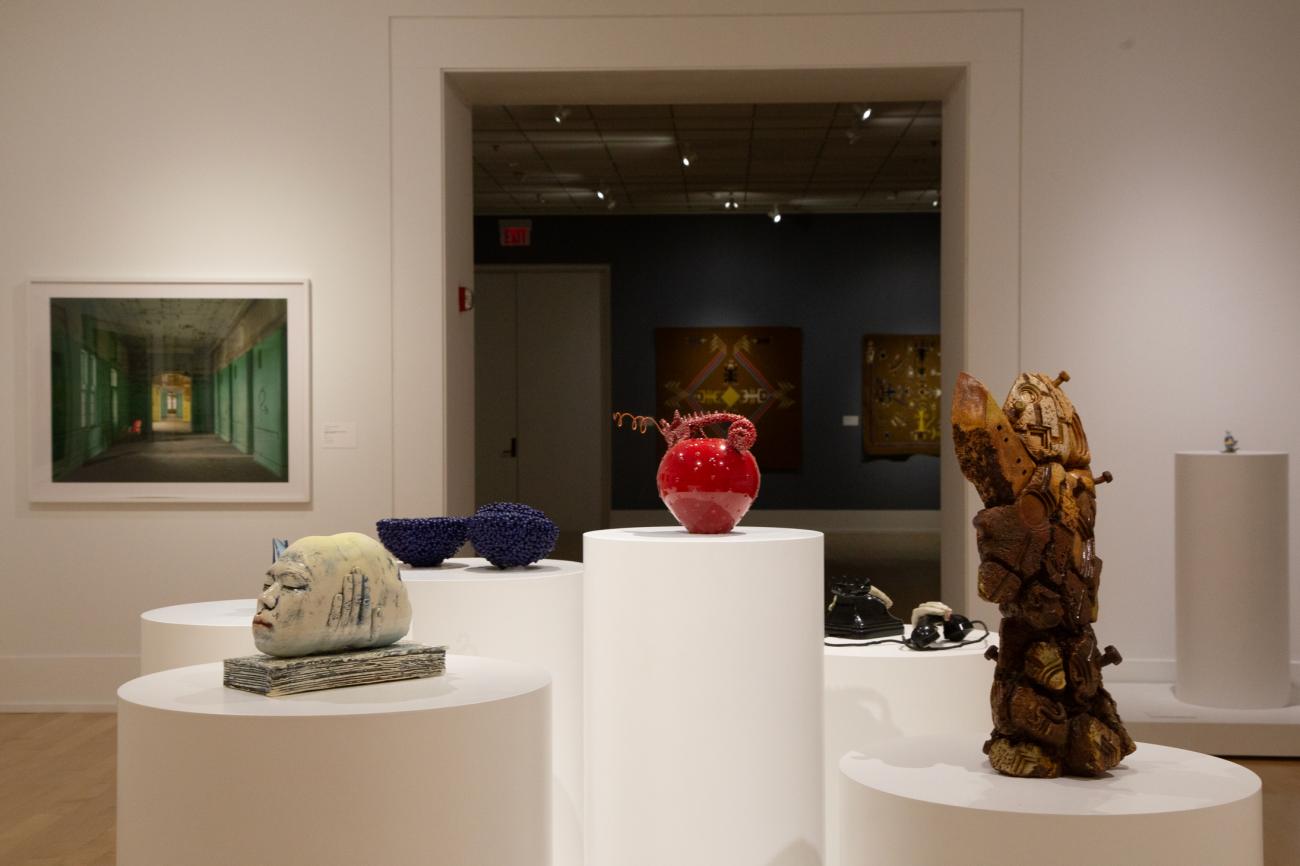The following are the areas, each overseen by a singular professor, in the School of Interdisciplinary Arts:
Visual Culture | Literature of the African World
In this area, students may investigate visual, spatial, or literary production in transnational networks of the African world. Students research visual culture, literature, built form, or urban geography. Topics cover diaspora studies, postcolonialism, and globalization. The courses needed to complete a student’s primary or secondary area may be taken with a range of other Africanist professors across Ohio University.
Art | Architectural History
Students conduct research on the history of the visual arts and architecture. Courses are object-oriented, focus on cultural context, and address interdisciplinary arts concepts like word and image, art and performances, and art and power.
Ethnomusicology | Musicology
Students in this area explore how and why people create music in historical, cultural, and transnational contexts. Courses focus on how ethnomusicologists and musicologists forge interdisciplinary scholarship with archival sources, interviews, participant-observation, song texts, scores, and transcriptions.
Black Visual Studies
This area focuses on Black film, Black visual culture, Black popular culture including camp, and queer studies from an ethnic studies perspective. Students are encouraged to develop interdisciplinary models that critically explore social contexts.
Film Studies | Comparative Literature
For this area, studies involve modes of reading history and culture through the lens of national and transnational literary and filmic texts. Global awareness is emphasized as well as particular Western and Eastern traditions.
Theater | Performance Studies
Students investigate theater, drama, and performance studies. Topics include dramaturgy, theory, ethics, and contemporary German performance.
Philosophy of Art
The area combines philosophy of art with philosophy of culture and history of ideas to study them as dynamically interconnected and historically conditioned factors in the circulation of concepts, symbols, rituals, and artistic practices.

